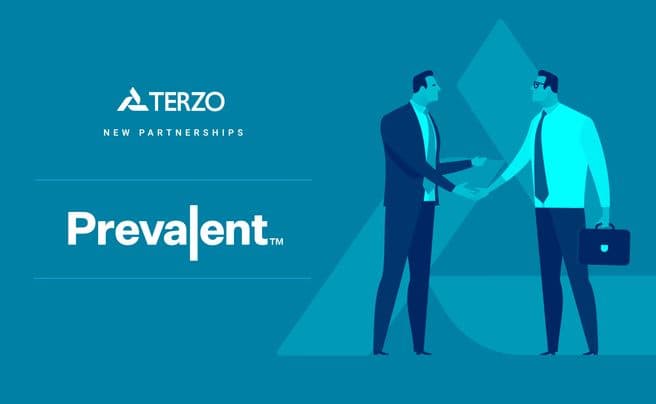The past few years' supply chain upheavals clearly demonstrated the importance of maintaining a resilient supply chain. Managing suppliers well can benefit your supply chain and, by extension, your business success.
Why You Should Improve Your Supplier Relationship Management
Good relationships with your suppliers benefit both of you. They can lead to lower prices, better service, and increased access to resources that may be difficult to find otherwise. Improving your supplier relationship management (SRM) strategy can improve your operational efficiency and give you a competitive edge.

Optimizing SRM includes evaluating all aspects of your company’s interactions with your suppliers. Effective SRM will streamline transactions and foster strong, collaborative partnerships. Here are several reasons you should improve your SRM practices:
Increase Your Supply Chain Reliability and Resilience
Building a strong relationship with your suppliers helps them understand your business needs, and they’re often more willing to go out of their way to meet them. You’ll develop a mutual understanding that can improve your supply chain's reliability. Happy suppliers will more likely prioritize your needs and work closely with you to prevent disruptions. In times of crisis or market fluctuations, a solid supplier relationship can allow your business to adapt and respond to challenges more effectively.
Improve Quality and Innovation
Your suppliers deliver the raw materials that affect the quality of your final product or service. When you improve your relationships with them, you create a framework for open communication and feedback. Strong connections with your partners and vendors encourage them to maintain high-quality standards and provide you with the best offerings to meet your needs.
Suppliers are more likely to invest in understanding your business when they have a mutually beneficial relationship with you. When they understand your business goals, they can often offer tailored, innovative solutions to help you achieve your strategic objectives.
Optimize Costs and Efficiency
Managing supplier relationships effectively can help increase cost savings and improve operational efficiency. Strong relationships with suppliers can result in better negotiation outcomes. You may be able to negotiate volume discounts, more favorable payment terms, or access to premium services at no additional cost. And benefits to you never need to come at the expense of your supplier. When you understand each other’s business processes, you can work together to streamline operations, reduce waste, and improve logistical efficiency — which reduces costs for both of you.
Mitigate Risks
From cyber attacks to labor shortages to climate disasters, modern supply chains face risks from every direction. A close vendor relationship can give you better visibility into their operations and help you ward off potential risks. Taking a proactive approach won’t eliminate all risks, but it can help you anticipate disruptions and develop risk mitigation strategies for business continuity.
Drives Sustainability and Ethical Practices
Sustainability is becoming a significant consumer concern. Younger consumers, in particular, are more likely to trust brands committed to sustainable and ethical practices. By fostering solid relationships with your suppliers, you can encourage and collaborate on sustainable measures to align your supply chain with your environmental standards and social responsibility goals.

Supplier Relationship Management Best Practices
To build strong supplier relationships, you need to focus on strategic partnerships that yield mutual benefits. The following best practices in your SRM system can improve reliability and performance in your supply chain.
Establish Clear Communication Channels
Good business relationships are built on transparent, open communication channels with suppliers. Establish regular communication through meetings, performance reviews, and updates so you’re both on the same page regarding goals, expectations, and feedback. Take advantage of technology, such as supplier relationship software or collaborative platforms, to improve real-time communication and documentation. Collaborative tools make managing contracts and orders easier and help you resolve issues promptly. Effective communication can help you solve problems quickly and build trust and understanding between parties.
Foster Mutual Trust and Collaboration
Beneficial relationships based on mutual trust and collaboration are the only way to create long-term success in strategic supplier management. Treat suppliers as strategic partners rather than mere vendors. Engage them early in the decision-making and product development processes since they can often bring their expertise to the table. Recognize their success and contributions to your business, and be transparent about your strategic goals and challenges. This collaborative approach can lead to more innovative solutions and a willingness to invest in the success of your business. Your goal is to create a win-win situation where both you and your supplier are better off because of your relationship.
Implement Continuous Performance Monitoring
Even though you want to build a strong relationship with your suppliers, you still need to make sure the partnership is productive and helps you meet your business objectives. Implement measures to monitor their performance regularly. Set clear, measurable key performance indicators (KPIs) related to quality, delivery, cost, and innovation. Use these KPIs to assess and discuss supplier performance. Providing constructive feedback and recognizing achievements are both important. Performance monitoring identifies areas for improvement, promotes accountability, and drives continuous improvement efforts. Leveraging technology, such as contract analysis software, for data analysis and reporting can provide deeper insights into supplier performance and help you make informed decisions about how to manage supplier relationships.
Prioritize Supplier Development and Innovation
Investing in your suppliers' development and innovation capabilities can yield a competitive advantage for both of you. Identify key suppliers with strategic importance and invest in their performance and innovation capabilities. You can collaborate on research and development projects that could lead to breakthrough products or services. You can also encourage suppliers to adopt new technologies or sustainable practices. If a supplier knows you’ll support their efforts in sustainable sourcing, even if it may increase costs, they’ll be more willing to make the investment.
Ensure Risk Management and Compliance
Ultimately, your customers and investors expect you to vet your suppliers thoroughly. Effective SRM must include strong risk management and compliance mechanisms. Your procurement team needs to understand all of the potential risk factors within your supply chain, including operational, financial, geopolitical, and environmental risks. Work closely with your suppliers to develop risk mitigation strategies and contingency plans. Make sure your suppliers comply with relevant laws and industry standards, including those related to labor practices, environmental protection, and data security. Regular audits and assessments can help you maintain compliance and identify risk exposure early.
Get a Real-Time View of Every Supplier Relationship in Your Portfolio
SRM is built on personal, human relationships, but AI technology can make the process easier. At Terzo, we combine the efficiency and analytical power of AI with human expertise to help you optimize all of your supplier contacts. Contact us today to find out how we can help you build strong, effective relationships with your supplier base.




